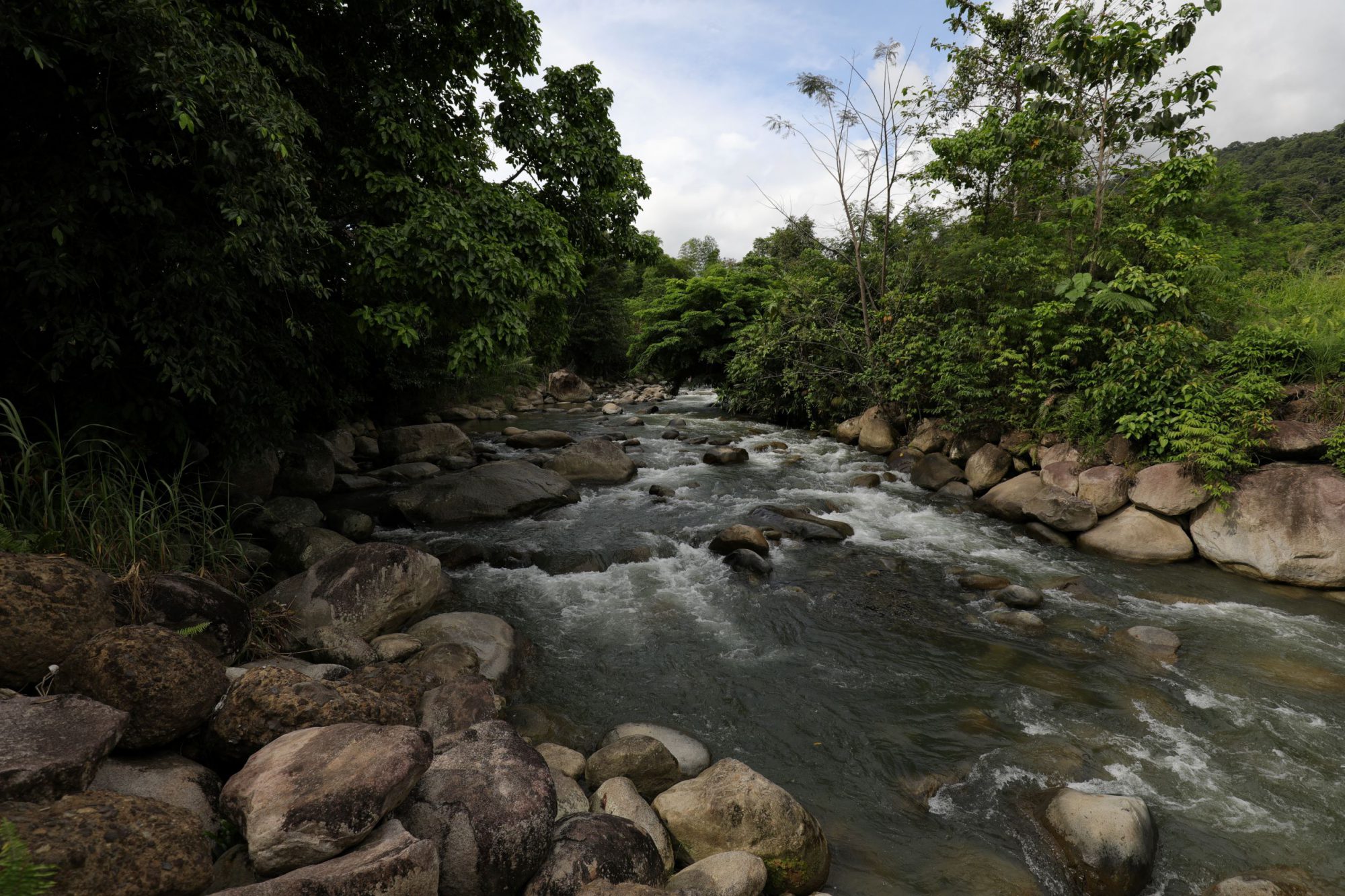Water is a vital resource for our mining and processing activities, employees and host communities. We prioritise the security of our water supply, the protection and responsible usage of our water resources, and water recycling.
In FY24:
- We outperformed on both our potable water and recycled water targets
- We recycled more than 70% of our total water use and continued to add reverse osmosis plants into our portfolio
- While South Africa saw a 3.6% reduction in potable water usage, Papua New Guinea saw a 3.4% reduction in water usage
- No water was used for primary activity (mining) in Australia.
Our approach
Our water management strategy, adopted at all operations and tailored to each region’s climatic conditions, outlines the actions we take to:
Protect water quality and the volume of potable water available to surrounding areas
- Reducing potable water consumption through recycling and reuse
- Managing and mitigating water discharge
- Mitigating scarcity impacts through improved efficiencies, substituting potable supplies and maximising recycling
- Reducing costs and increasing revenue through the establishment of water treatment plants
- Returning treated water to source and securing the availability of potable water for host communities’ basic needs
- Beneficiating water in partnership with our peers and utilities.
Integrate proactive risk management
A climate change scenario analysis indicated water security is a risk due to extreme storm and drought events and higher temperatures that could affect the underground environment and food security. We manage this risk through various initiatives and water use monitoring across our operations.
Monitor performance and comply with regulations
We have set site-driven water management targets to help address site-specific risks, including legacy issues, latent and residual risks. These targets are supported by appropriate management actions following a hierarchy of controls (i.e. avoid, minimise, reuse and recycle), including implementing integrated water and waste management plans and water balances.
Our water use in FY24 was as follows:
Regional performance
South Africa
South Africa is a water-scarce country and the availability of water can be unpredictable, particularly during a protracted drought. Additionally, we often depend on municipal water, exposing the group to tariff increases and supply shortages. By executing on our water management strategy, we aim to increase the security of water supply and reduce our reliance on municipal water systems.
The successful completion of phase 1 and 2 of the Kareerand pump and treatment plant has decreased sulphate levels in groundwater sources by between 80% and 92%. We also now have a unique indigenous microbial community for our Kareerand site.
At Doornkop, we plan to increase our reverse osmosis plant capacity to bolster our water recycling ratio and reduce potable water intake. And reverse osmosis plants have been commissioned at Target Shaft and Harmony One Plant.
Papua New Guinea
At Hidden Valley, we face unique challenges due to steep topography and high rainfall. Our focus is therefore on
- Controlling rainfall run-off to prevent erosion
- Recycling site water to reduce extraction from surface water sources
- Treating wastewater before discharging to the environment.
Our water use decreased by 3.4% at Hidden Valley in FY24 compared to FY23. A rainwater harvesting project will be implemented in FY25 and will include the installation of water tanks to supplement Hidden Valley’s water supply.
Australia
Site conditions in Australia are analogous to the water scarcity challenges we experience in South Africa. We anticipate that water conservation and recycling initiatives will be critical components of the water balance for developing and operating this asset. As a result, we are evaluating multiple water supply options as part of the Eva Copper feasibility study to define a sustainable solution. Our work includes:
- Optimising water management infrastructure
- Engaging with stakeholders to understand partnerships and mutually beneficial opportunities
- Conducting ongoing groundwater pumping test programmes on-site
- Planning for both water deficits and extreme rainfall events.
Future focus
We remain committed to significant capital investment in increasing our water recycling ratio and reducing potable water intake by materially adjusting our water sourcing profile in line with industry best practice and local sustainable development objectives.
Case studies
-
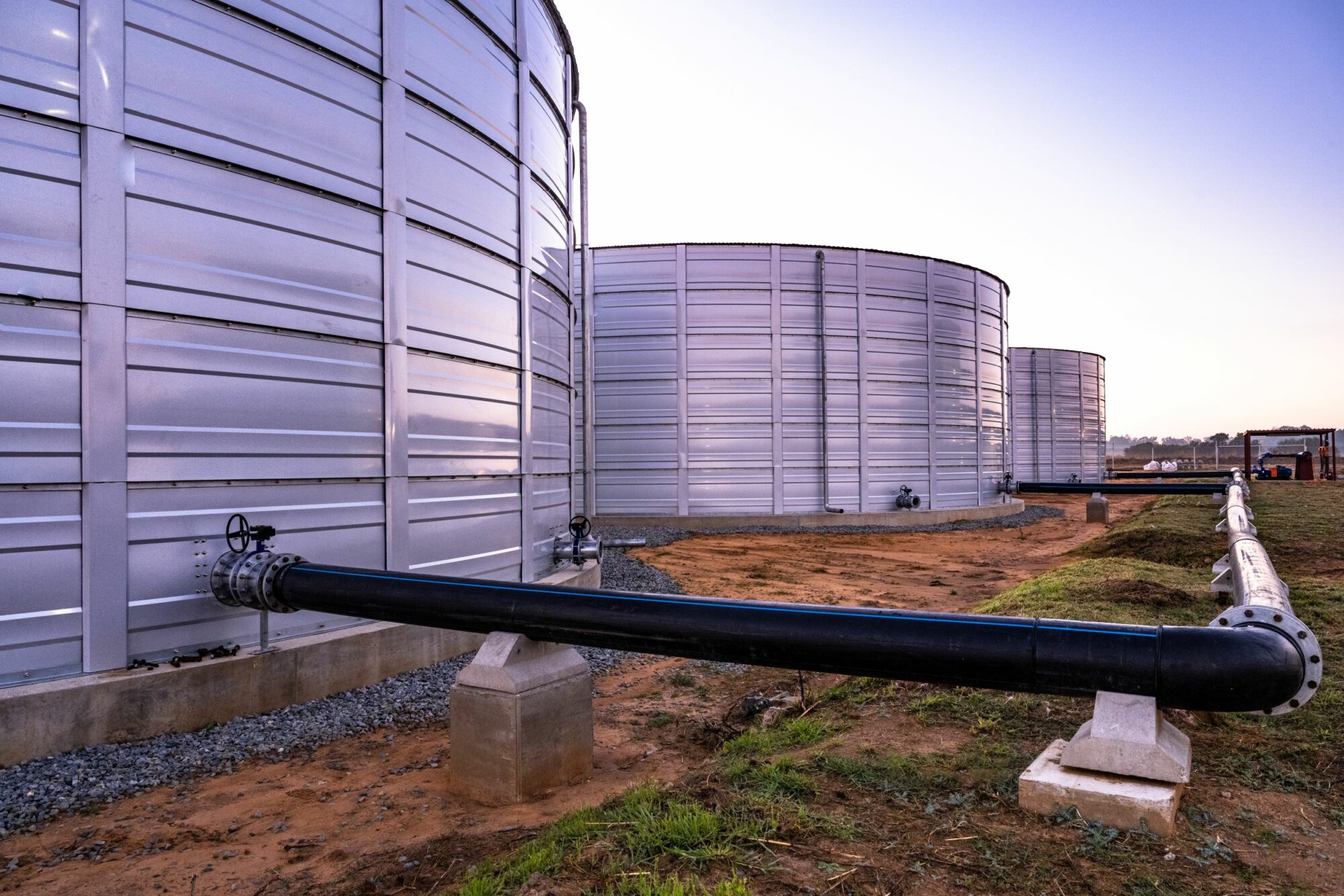
Collaboration is key for a win-win solution to water scarcity
Like Harmony, many mining companies pump large volumes of water from underground operations to ensure sustainable and safe mining. This is an opportunity in waiting if we could beneficiate this water for society.
-
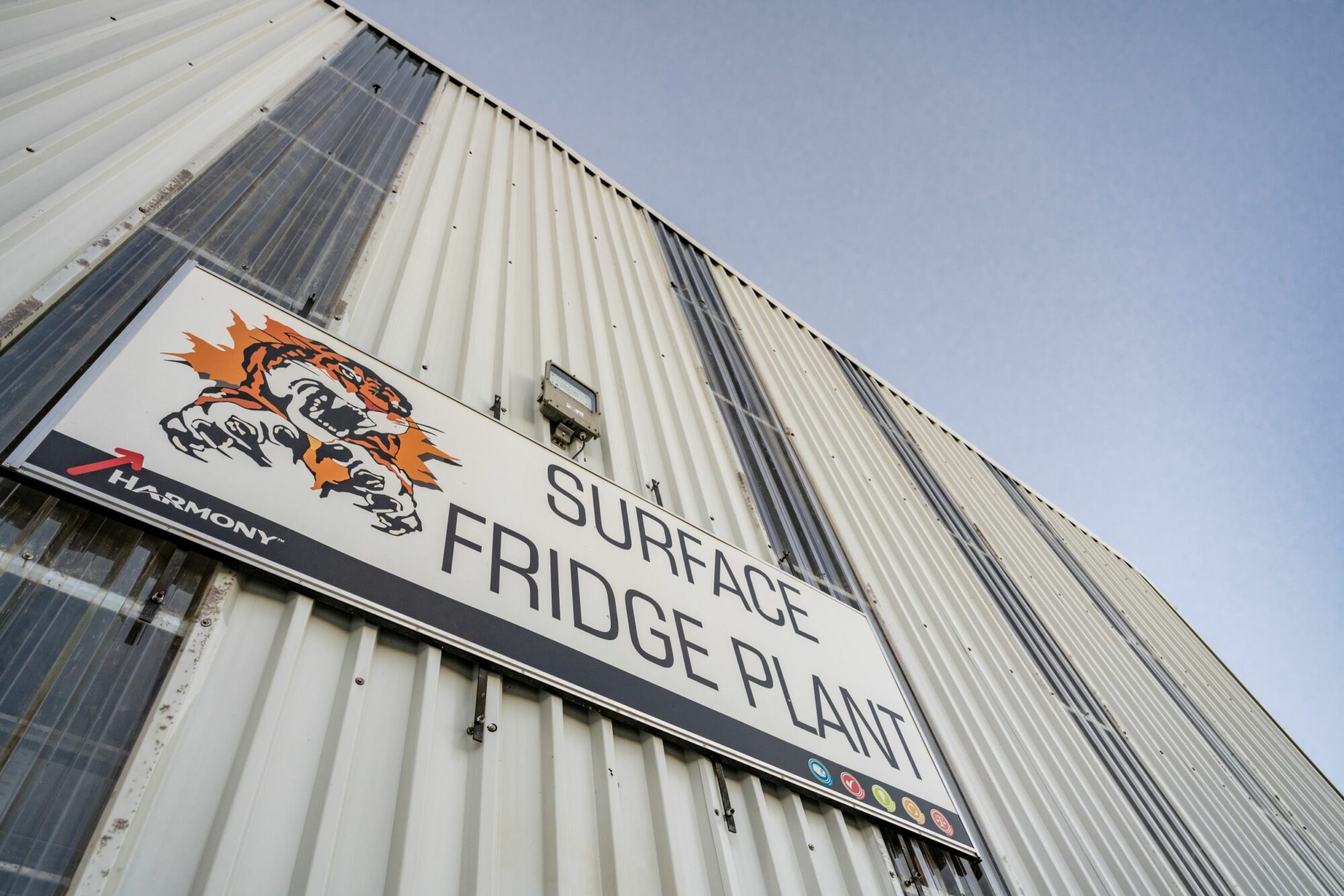
Demonstrating our commitment to sustainable water use
Harmony continuously aims to reduce our reliance on potable water and improve our water conservation efforts. During the year, Harmony launched several initiatives that resulted in significant potable water savings.
-
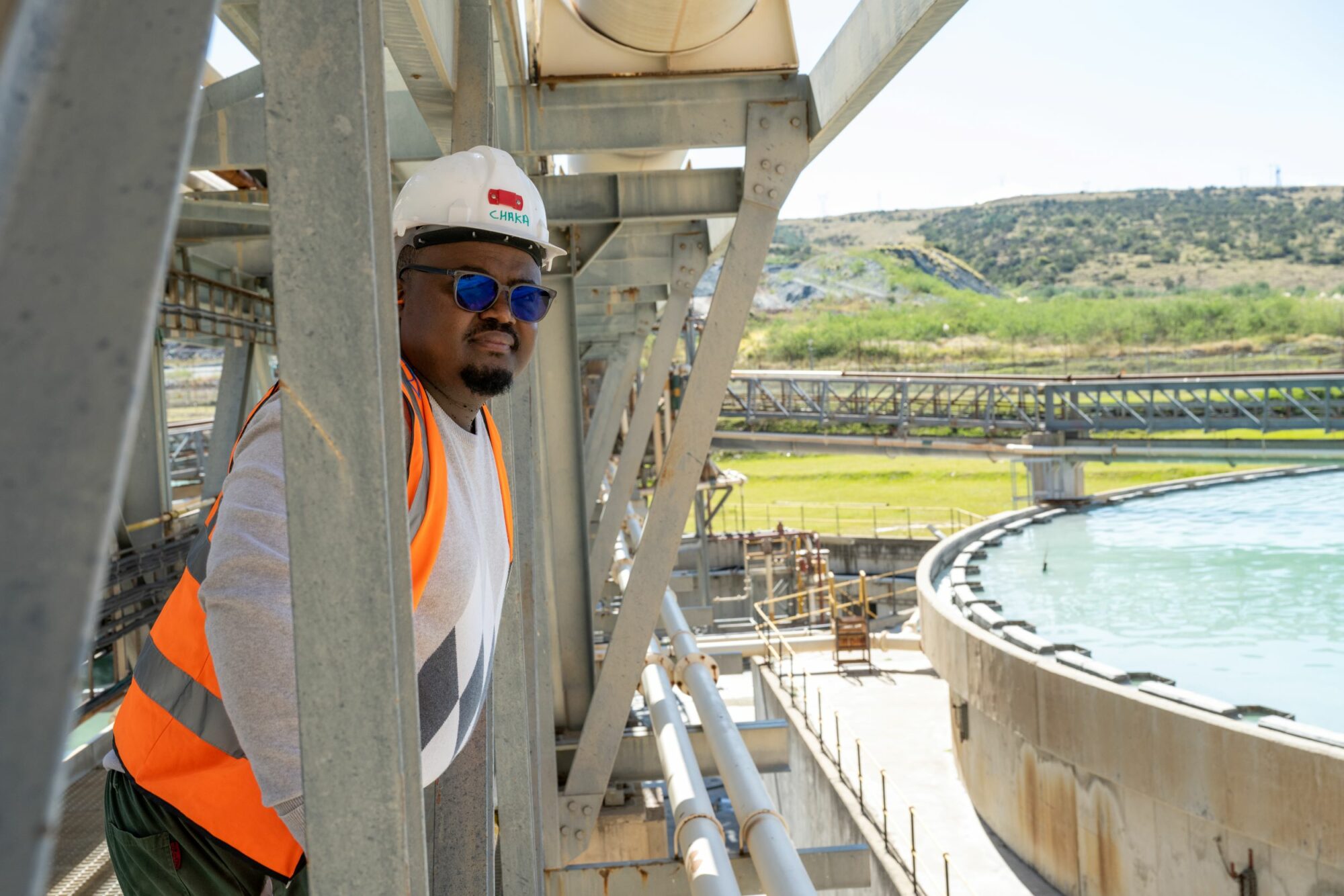
Securing potable water supply for stakeholders
Harmony’s water management strategy, recognising that water is critical for mining and processing activities and development, acknowledges the importance of securing potable water supply for our host communities and operations, especially in water-scarce areas.
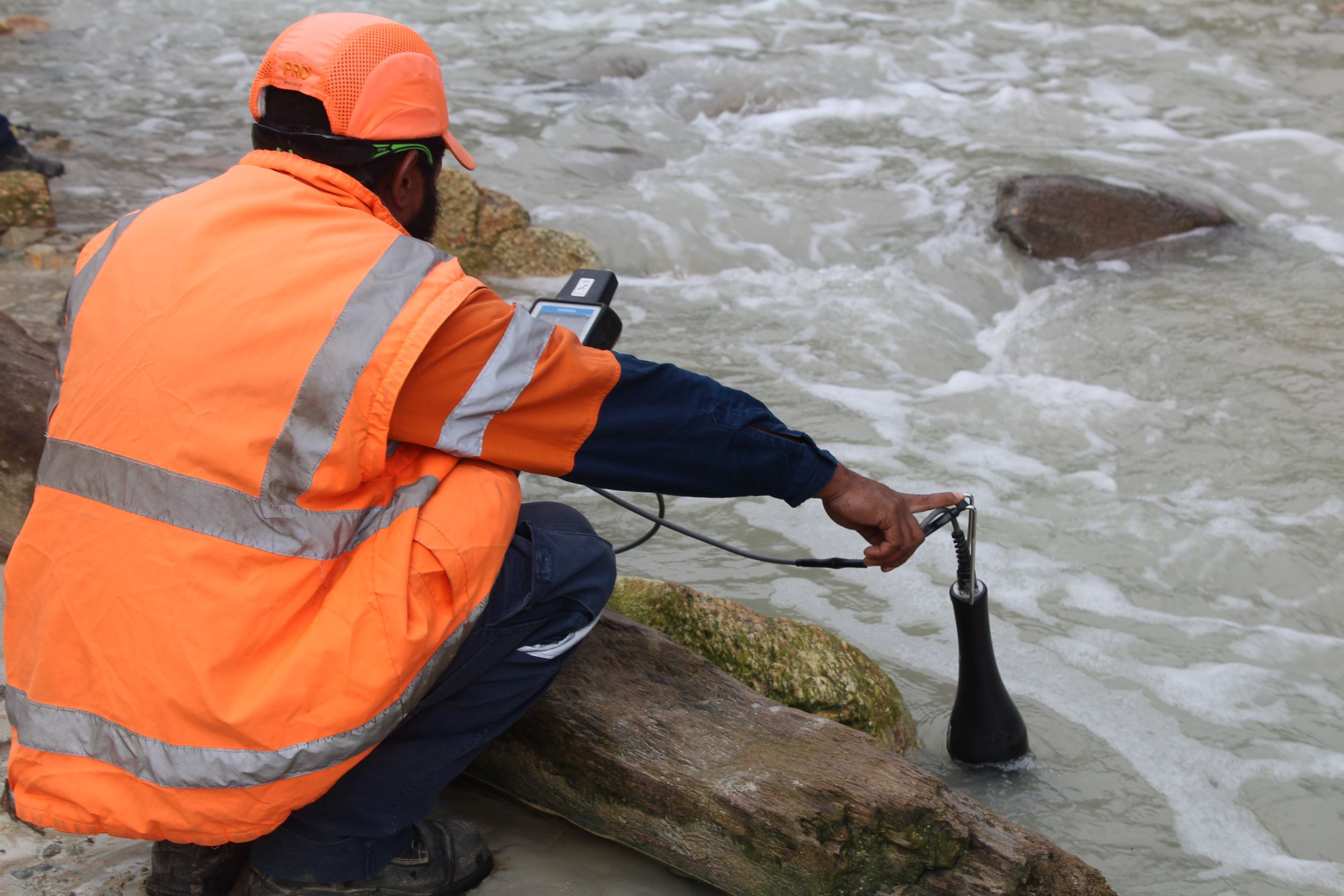
Further information
Discussions and data on our water management approach and performance.
